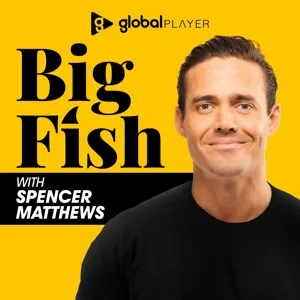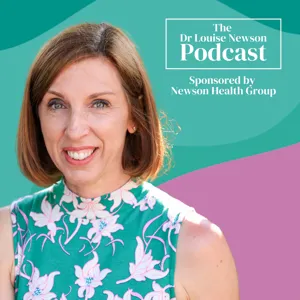Did you know that every 12 years, our skeletons undergo a complete transformation?
Osteoporosis, a condition where bones become fragile, significantly increases the risk of fractures from minor incidents, often without any noticeable symptoms. Worldwide, it affects one in three women and one in five men over fifty, leading to pain, potential disability and loss of independence.
In today’s episode, Jonathan, Tim and Cyrus ask the question: How can understanding osteoporosis and implementing targeted lifestyle changes enhance bone health and reduce the risk of fractures?
Cyrus Cooper is a Professor of Rheumatology at the University of Southampton, where he is also the Director of the MRC Lifecourse Epidemiology Unit and Vice-Dean of Medicine. In addition, he’s a Professor of Musculoskeletal Science at the Nuffield Department of Orthopaedics, Rheumatology and Musculoskeletal Sciences at the University of Oxford.
Tim Spector is one of the world’s top 100 most-cited scientists, a professor of epidemiology, and scientific Co-Founder at ZOE. Tim trained originally in rheumatology and epidemiology.
Make smarter food choices for your body: zoe.com/podcast
Follow Tim on Instagram.
If you want to uncover the right foods for your body, head to zoe.com/podcast, and get 10% off your personalised nutrition program.
Follow ZOE on Instagram.
Timecodes
00:00 Introduction
01:21 Quickfire questions
03:08 What is osteoporosis?
06:10 Why might our bones become more fragile as we age?
08:10 Your skeleton renews itself all the time
10:30 Does menopause cause osteoporosis?
12:48 What's it like living with osteoporosis?
15:16 How common is osteoporosis in males?
16:04 What are the symptoms of osteoporosis and at what age should you get checked?
21:40 Some chilling statistics about osteoporosis
23:10 Common myths about the effects of calcium and vitamin D on osteoporosis
27:50 What is the latest science on vitamin D supplementation?
34:10 Can vitamin D and calcium ensure children’s bone density is healthy?
34:55 Osteoporosis treatment options, including new drugs
37:20 The impacts of HRT on bone density
39:30 What are the downsides to some of these treatments?
43:00 Does physical activity help to prevent fractures?
44:30 Lifestyle impacts: diet and nutrition
49:40 Can exercise make your bones stronger?
55:20 Ideal exercises to prevent osteoporosis
57:10 Cyrus and Tim’s top 3 actions to improve bone health
59:10 Summary
Mentioned in today's episode:
Relevant studies:









